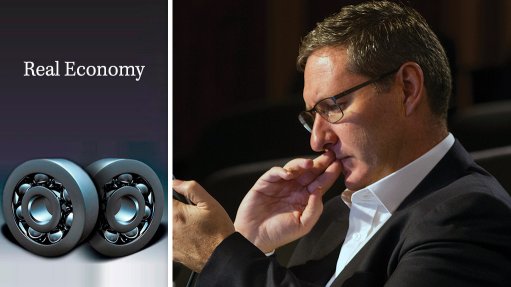
There is now absolutely no question that the country’s toxic politics is dragging the economy down and that most, if not all, the pain is self-inflected.
There is also no doubt that, because the most pressing problem is a political one (corrupt politicians and private citizens, who have distorted well-intentioned policy for their own greedy ends), the immediate solution lies in the political theatre. That’s not to say it’s the most sustainable solution. Indeed, it could be argued that the only way to deal decisively with the scourge of corruption is to use the criminal justice system to make a high-profile case for why corruption should not and does not pay.
That said, South Africa cannot afford to remain in these doldrums for much longer. If it does, there is the real risk that growth will continue to flatline, investors will pursue other prospects, even more jobs will be lost, crime will worsen and the most skilled among us will abandon ship.
Back, therefore, to the political remedy. Sadly, the first opportunity to deal with the poisonous politics of the moment – the meeting of the National Executive Committee of the African National Congress (ANC) – was not seized. It also appears increasingly likely that the next opportunity – a vote of no confidence in Parliament – will also be allowed to slip. That leaves the December elective conference of the ANC, which not only seems a long way off in light of the damage being inflicted, but also carries with it a great deal of risk. Should the Cyril Ramaphosa faction fail, the economic outlook will deteriorate further, while the societal crisis will deepen.
For the sake of argument, however, let’s discount a December ‘self-correction’. That being the case, what should be done during the intervening five-and-a-bit months? It seems the best South Africans can hope for is some form of damage control.
For a clue as to what that would entail practically, the Moody’s statement, released following its June 9 decision to downgrade South Africa, offers useful guidance. Of the three drivers behind the downgrade, two (the further weakening of South Africa’s institutional framework and reduced growth prospects) can arguably only be solved through the political intervention canvassed above.
However, something can be done about the third: the continued erosion of fiscal strength. There is little doubt that the government balance sheet is going to come under even more strain as a result of the recession. There is also a growing risk that contingent liabilities associated with badly governed State-owned companies could present as real liabilities. Nevertheless, there is still some room to influence the fiscal balance, as well as perceptions about government’s commitment to holding the fiscal consolidation line.
Therefore, it is not over- stating things to argue that the October Medium-Term Budget Policy Statement could be the most important ever delivered. What is far from clear at this stage, though, is whether Finance Minister Malusi Gigaba has the credibility required to deliver a statement that will indeed control the damage.